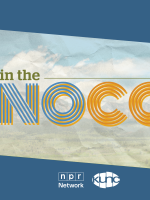Since early 2023 hundreds of Denver residents experiencing homelessness received a monthly income whether they had a job or were unemployed.
Eight hundred participants received the payment as part of a program called the Denver Basic Income Project. It was a pilot program designed to study whether rates of homelessness decrease when people are given a base-line income. Participants received either $600 a year or $12,000 a year.
The money came from a combination of public and private sources, including $4 million dollars from the office of the Denver Mayor. But the mayor’s office recently announced its plans to end its funding of the project. A spokesperson from the mayor's office pointed to disappointing results documented in a study of the program.
So what were the results – and did the basic income payments help the people who received them?
Erin O’Toole spoke with Katie Calhoun -- an Assistant Professor at The Ohio State University -- about the results of the study. She served as a research lead on the project and also advocates for guaranteed basic income. She and a team of researchers at the University of Denver worked with the Denver Basic Income Project to decide what the different levels of income would be for participants. Then her team interviewed recipients on how it affected their lives to receive a guaranteed income.
Correction: An earlier version of this episode misstated the amount of funding the office of Denver’s mayor contributed to the Denver Basic Income Project. The audio has been updated to reflect the correct amount, which is $4 million.







